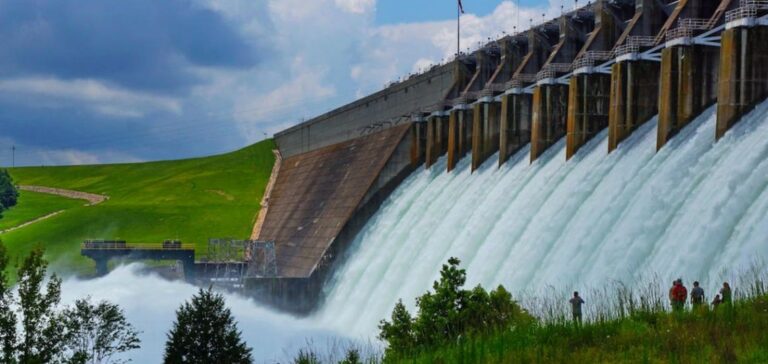The eastern region of Kazakhstan, already a leader in national hydropower production, is advancing its energy infrastructure with an ambitious program to construct five new hydropower plants. These projects, scheduled for completion by 2030, aim to diversify energy sources and strengthen the region’s energy security.
The program includes a 1.4 MW plant in Katon-Karagay, slated for 2027, and a 50 MW facility on the Bukhtarma River in the Altai district by 2029. Two additional plants, with respective capacities of 4.5 MW and 2.4 MW, will be constructed in the Zaisan district. Finally, a 16 MW plant will be built in the Markakol district, with commissioning planned for 2030.
A Strategic Region for Hydropower
Eastern Kazakhstan stands out as a key area for hydropower production due to its extensive river networks and high hydrological potential. Currently, the region operates seven hydropower plants, which collectively generated 7.6 billion kilowatt-hours (kWh) in 2024, including 243.5 million kWh from renewable sources.
The region’s hydropower potential remains largely untapped. Studies estimate that up to 95 small hydropower plants with a combined capacity of 2 gigawatts (GW) could be developed in the area. These opportunities have garnered interest from both local and international investors.
Challenges and Measures to Overcome Obstacles
Despite the promising outlook, challenges persist, particularly regarding land availability. Most planned sites are located in protected forest zones, requiring specific coordination with environmental authorities.
According to Nurlan Ramazanov, head of the region’s Energy and Housing Utilities Department, these constraints have slowed approval processes. However, measures are being implemented to expedite issue resolution.
At the same time, authorities are working to balance energy development with river ecosystem preservation. New installations will incorporate technologies designed to minimize environmental impacts.
Growing Support from Investors
Kazakhstan’s hydropower initiatives are attracting increasing interest from international partners. The Asian Development Bank (ADB) recently signed a strategic agreement to develop projects totaling 600 MW across the country. In another region, the Italian company NatPower secured a contract to build a 33 MW hydropower plant with an investment of €40 million.
Eastern Kazakhstan hopes to capitalize on this growing interest to strengthen its hydropower capacity, which is viewed as a reliable and flexible alternative to intermittent energy sources like solar and wind.






















